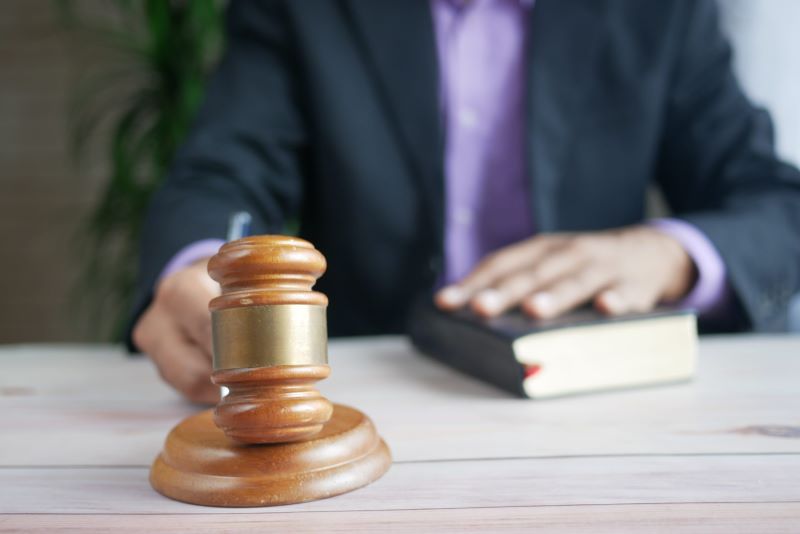United States
What Does It Mean to Be a Habitual Offender in South Carolina?
As of April 2024, South Carolina’s three-year return-to-prison rate is 17%, which is the lowest in the country. The South Carolina Department of Corrections (SCDC) defines recidivism as being reincarcerated within three years of release.
South Carolina habitual traffic offenders can have their driver’s license revoked for up to five years. And if someone continues to drive while under this suspension, they may face serious legal penalties, including jail time.
Any person receiving this label should speak with a traffic attorney to reduce penalties or avoid habitual offender status by contesting the accusations.

Definition of Habitual Offender
The label “habitual offender” is given to an individual who has been convicted of multiple serious offenses within a specific period of time. It applies to those who repeatedly commit serious traffic violations, such as DUIs or driving without a license. The law takes this designation seriously and if you are labeled as such, it might have major ramifications for your future. As such, additional infractions may result in harsher jail sentences and tighter parole.
Habitual offenders are seen as a risk to society by the judicial system. This position is usually reserved for lawbreakers who haven’t changed despite previous interventions. With legal help, you can fight this designation and avoid the grave consequences of being labeled a habitual offender.
Criteria for Determining Status
South Carolina courts evaluate your criminal history to determine habitual offender status. This status usually requires repeated convictions for particular offenses within a certain span. South Carolina considers a person a habitual offender if they’ve been convicted of three or more crimes with at least one year in prison. These offenses must have occurred separately and not from the same incident.
Reckless driving can play a significant role in labeling someone as a habitual traffic offender (HTO). For example, under California’s reckless driving law, if someone is convicted of reckless driving, it may lead to the designation of a habitual offender.
These convictions must occur within 10 years, according to South Carolina law. The offenses that might lead to habitual offender classification vary, but they usually involve violent or drug-related crimes.
Penalties for Habitual Offenders
Habitual offenders in South Carolina face increasingly severe penalties for their repeated criminal behavior. The penalties escalate with each subsequent offense, aiming to deter individuals from engaging in further criminal activities. For example, a first-time offender may receive a less severe punishment compared to someone designated as a habitual offender.
Habitual offenders receive longer jail sentences, higher fines, and fewer parole or probation possibilities. Criminal background and current offending severity are considered when deciding a sentence. Habitual offenders may get mandatory minimum penalties, limiting court discretion.
Habitual offenders may also be disqualified for diversion programs or alternative sentencing choices for first-time offenders. More severe sanctions for habitual offenders protect the community against repeat criminals and encourage rehabilitation.
Legal Process for Habitual Offenders
As a habitual offender progresses through the legal system in South Carolina, their criminal history and current offense severity play significant roles in determining the ensuing legal process. Upon being identified as a habitual offender, the individual faces enhanced penalties due to their repeated criminal behavior.
The legal process begins with the classification of the individual as a habitual offender based on the number of prior convictions and the nature of the current offense. This classification triggers a more stringent legal pathway, often involving harsher sentencing guidelines.
Using the offender’s criminal past and current charges, the prosecution will show the pattern of repeated crime. The defense may request leniency or submit mitigating facts to minimize penalties. The judge decides after reviewing all facts and arguments.
Impact on Offender’s Future
Habitual criminals in South Carolina incur heavy penalties and legal ramifications, which hurt their future opportunities. A frequent offender’s criminal record may hurt your job and housing prospects. Background checks can discover habitual offenders and lead to rejections by employers and landlords. Your future chances may also be limited by your habitual offender status, which can result in the loss of civil rights like voting and gun ownership.
Being a habitual offender can also harm your relationships and social standing. Friends and family may avoid you due to your criminal history. Isolation can cause loneliness and alienation from support systems needed for rehabilitation and reintegration. Beyond legal repercussions, repeated offenses shape and limit your destiny in many areas of life.
Conclusion
Now that you know what it means to be a habitual offender in South Carolina, always keep in mind that the state’s legal system aims to lessen future crime by giving out harsher punishments to repeat offenders. It is better to always comply with the law and be a good citizen.
